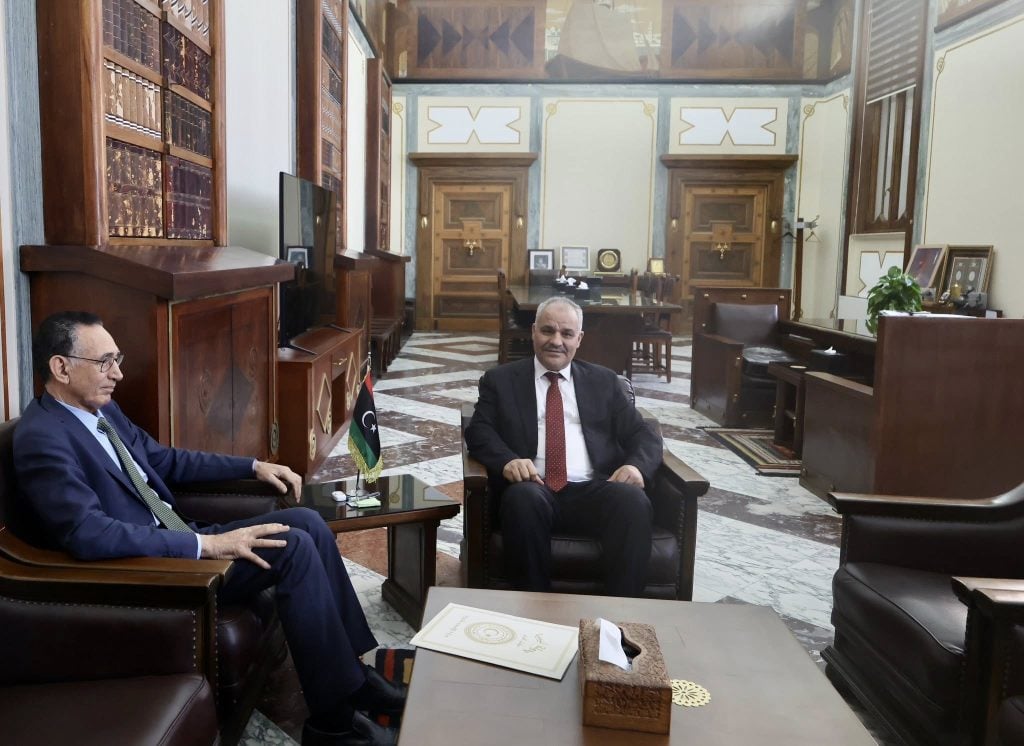In the framework of enhancing coordination and integration between macroeconomic policies in Libya, the Governor of the Central Bank of Libya, Naji Muhammad Issa, held an expanded meeting with the Minister of Economy and Trade of the Government of National Unity, Mohamed Al-Hweij, in the presence of a number of specialized departments from both the Central Bank and the Ministry.
The meeting focused on the importance of coordination between the Ministry of Economy and the Central Bank in implementing a package of measures to support the Central Bank’s procedures for regulating imports and the foreign exchange market. This is to ensure the regulation of foreign trade and enhance the stability of the Libyan dinar’s value against foreign currencies, especially in light of the recent package of regulatory measures taken by the Central Bank. It also emphasized the need to issue a decision prohibiting the import of goods outside official banking channels, with an exception for small traders up to a ceiling not exceeding $100,000, provided they submit proof of the source of their funds. A ban on the re-export of goods where the foreign component exceeds 70% was also stressed, in order to preserve foreign currency reserves. Furthermore, it was agreed to launch a goods tracking system to monitor the movement of imported goods from the source to the consumer, which is set to be implemented at the beginning of next November. The application of the advance system for the classification and codification of goods (H.S. code) and the regulation of market conditions in terms of prices and goods specifications were also agreed upon.
This meeting comes in the context of ongoing efforts to restructure the national economy and to enhance the effectiveness of economic policy tools in line with the requirements of the current stage and the prevailing challenges in the Libyan economic environment.
